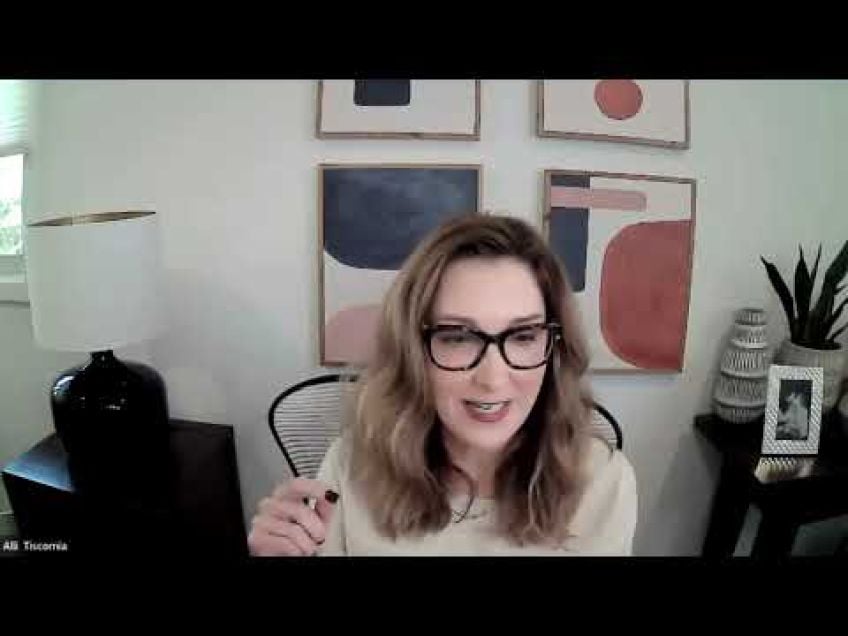Becoming Best Friends with Imposter Syndrome
Swapna Malekar
Principal Product LeadFriendship with Imposter Syndrome: Embracing the Challenge
Hello everyone, I am Swapna, your guide through this exciting journey to becoming best friends with imposter syndrome. Regarded with quite some negativity, my hope is to help illuminate the potentially beneficial aspects of imposter syndrome during today's short talk.
Becoming Best Friends with Your Imposter Syndrome
Imposter syndrome can often manifest negatively, causing self-doubt and questioning of one's abilities even in the face of notable achievements. However, I argue that by embracing this discomfort and befriending the imposter syndrome, we can inspire personal growth.
Through the years, my professional journey, be it roles in various industries or the current one at Microsoft, has been intermingled with imposter syndrome at different junctures. Even in instances where I felt I had produced significant impact and growth, the aftertaste of doubt persisted. Consequently, I turned to introspection and therapy-like discussions with friends and allies to deconstruct this self-doubt. The outcome? My imposter syndrome was a manifestation of my thought processes and situations out of my control, which did not reflect my abilities.
Strategies for Tackling Imposter Syndrome
From this introspection arose five strategies that not only eased my own battles with imposter syndrome but may as well prove helpful for you:
Embrace It
Imposter syndrome is not your enemy. Trust me. You do not need to "defeat" it. Instead, embrace it - the fear, the low self-confidence, the confusion, and self-doubt. Accept it as a learning opportunity. Let it ignite personal growth and improvement.
Introspection
Self-reflection is a vital tool in understanding the root of your fears and self-doubts. It involves identifying and questioning the reasons you're feeling inadequate or overwhelmed. By undergoing this process, you can gradually dispel the fears that are mere speculations and work on the genuine ones.
Building a Network of Allies
Despite human resilience, there are times when we need support from our close networks. Your allies, who might be friends, family, or colleagues, can provide a different perspective, function as guides and inspire confidence in you. They, too, can help you introspect by asking difficult questions.
Earning Entitlement
Putting in hard work and maintaining humility is an essential aspect of owning entitlement. Seeing the underdog emerge victorious is always inspiring. They go unnoticed at first then out of nowhere, they make spectacular achievements that demand everyone's attention.
Put Yourself Out There
The last, but not least strategy, is about breaking your comfort zones and launching into the unknown. Despite the potential jitters and fear of failure, by preparing well and working through those intimidating situations, success can be achieved.
Thank you so much for joining me in this insightful talk. I hope my experiences can prove helpful to you. Here’s to becoming best friends with our imposter syndrome!
Video Transcription
So, hey, everyone. I am, uh, Swapna, your host for today for this uh, topic called Becoming Best Friends with imposter syndrome. And, uh, it's gonna be a short talk. We have about 15, 20 minutes.So I'll, I'll, I'll try to wrap it up and, uh, try to provide as much insight as I can in, in the, in these uh few minutes that we have. Um, so imposter syndrome definitely has, uh, a bit of a negative connotation to it. But I hope today's talk will help you to become familiar with your imposter syndrome and, uh, and be friends or be best friends with it. And I'm still trying to, uh, showcase my slides if I can because those slides have a few memes as well. So maybe that will help you. Um OK. So let me just, uh, get started on this. Yeah. Please let me know if, uh, the slides are visible. I know. I think I'm not doing a great job of, uh presenting them in the right way. But, uh, do let me know if you can see them. All right. Ok. So, uh, becoming best friends with Imposer Syndrome, let me start a bit about, uh, tell you a bit about me and my career. So, um I work at uh Microsoft, I'm a product leader there. And um even before Microsoft I've had, um uh uh you know, I have had roles with uh roles in different industries, uh uh uh you know, before, before this role and um I have gone through uh uh a lot of introspection and a lot of uh uh sort of a reflection uh uh in these last many years.
Uh because obviously I've been, uh I've come across a lot of situations or some of the situations have been faced. Some of the situations have been uh challenging as well. And um uh one example where it's sort of uh sort of one situation that kind of rattled me was uh one of the previous previous roles that I, that I, that, that I was in. And um I was pushed hard to, to accomplish some uh really great tasks or good, good sort of uh to create some good impact. Uh I worked a lot, uh II, I think I made a lot of impact. Um And uh I learned uh learned a lot in the uh in the process as well. I learned a new problem space in a relatively short period of time. Um I um I uh built a lot of relationships. I hoped I, I sort of moved the needle in the, on the, on the business spectrum as well, but this entire experience, um, left, uh, a bad aftertaste in a way. Um, and one of the other things that I, that I now reflect back and I know that I did back then was I started doubting myself, which is strange considering the fact that I was working myself off. I was learning a great deal.
I was taking up opportunities as they came my way. I was making, I was trying to make a positive dent in the business and I was growing as a leader in my own, right, uh in the, in the team. But then I still felt exhausted. I felt a little bit iii I wasn't so sure of my abilities and I sometimes, um, found myself outside looking in, uh, basically going about my, uh, about my job as an automaton. Um II, I sort of lost the zeal to give it my best in the role, uh, uh a few months down down the road. And, uh, I, I just, uh, I had this nagging feeling at the back of my mind, um saying that, uh, asking, hey, you know, did, did my manager or did the, the, the, the hiring manager make the best decision by hiring me was I even worth all that effort, right? And, um, after a lot of introspection and a lot of therapy, like talks with my friends and uh, and uh allies, uh I figured out that um what I was experiencing and what I experienced back then was nothing more, more than imposter syndrome, right? And it did not reflect um on my abilities to do my job well. Uh but a lot of it depended on, uh or maybe some part of it depended on the external factors, um which were not within my control.
And many of those, many of the other things were obviously dependent on how uh uh dependent on my thought process, my own thought process. Um And I left that role. I am now in a, in a, in a uh under the leadership of a more empathetic manager. I have a great team uh that I work with today. And I think the my imposer Syn syndrome is uh is under regression or at least I have tried to become best friends with it. Um And uh and uh I, I'm, I'm healing as well. So, um from my experience, these are the five strategies that I, that have helped me in a way. Um uh or all the learnings that I have made in the past, I think they distilled down to these five things which um which um which definitely have helped me but can help you as well. Uh And uh this is what I'm gonna talk about today. So the first one is uh basically embracing it, accepting it, learning from it. Um So for the longest time, I thought of the syndrome um as uh something that I need to overcome something that I need, I need to crush or eliminate from my life. Um, and, um, and I think last year I started doing these hikes around, uh, around Washington. Uh, I got into hiking, uh, but the first hike was really soul crushing because I literally got crushed on that. Uh, on, on my very first hike.
I, I chose a very, uh, challenging, uh, route, challenging trail, uh, as my first hike last summer. Um, and, uh, and, uh, uh, uh, uh, it, it sort of left me defeated. And after that I was like, uh, I had a lot of self doubt, uh, because I was like, hey, am I even good enough to, uh, go on these hiking adventures, uh, and even take up hiking as a, as a hobby, right? Uh, and for, for the, for, for the next two or three months, I literally did not go out anywhere. I did not go out in nature because that first sort of impediment, uh, uh, was really soul crushing for me. Um, but then I realized that, hey, you know what, um, some of the factors were not within my control, for example, the day started out sunny, but then it got, it started snowing and it was rainy and I did not have the proper equipment. I did not have the proper gear to accomplish that particular trail, uh, or that particular excursion. And, um, after a lot of, uh, after many weeks of recuperating my, uh, shattered ego in a way, I mustered the courage to sign up for another hike, which was, uh, which was moderately challenging. It was called Snow Lake.
And, uh, um, and by that time I had mentally prepared myself to just accept, to just accept even quote unquote defeat or just accept failure if it does happen on this second hike. And, uh, it, it paid off, it paid off amazingly. Well, it was a beautiful hike with some, some challenging terrain but nothing that I couldn't, uh I couldn't, uh I couldn't complete. And from there on, I went on to uh accomplish uh many more hikes and uh finish a lot of other trails that I, uh that I have good memories about. So, um by and large, I got my confidence back. Uh It wasn't, uh it wasn't a black box, uh that I couldn't fathom. Uh I knew the reasons, uh that had led to the first, uh the led to the mishap in the, in the first uh hike. Uh For example, my preparation levels were not up to the mark. There were some unfavorable weather conditions and of course, the fitness levels also needed some fine tuning. So by slowly optimizing each factor and by accepting, uh you know, the accepting anything that comes my way, basically, I, I uh started signing up for more and more hikes and then I sort of became, became a hiker.
So instead of treating of treating this syndrome as something that you want to overcome. You can embrace it for what it is. Uh it can be a little bit of fear, it can be a little bit of self, low self confidence, it can be a little bit of confusion and self doubt, uh accepted and and basically converted into a learning experience. So even if you feel that is ok and that you can just accept it, embrace it, learn from it and uh strive to improve yourself, right? So that is something that has happened to me in the recent past. And I was like, hey, what the hell, let me just go ahead and um get on with it. Um The second one is introspection or introspection of your deep seated fears, uh uh and uh karmic issues. Now, this word karmic issues, uh uh I have uh I just heard about it recently in a podcast and it's nothing but these, these fears or these uh self doubts that we have. Uh and how can you basically get through them instead of get, getting over them? You can get through them by introspection, right? And I feel this feeling of doubt uh usually creeps in for uh for a, for a lot of people, whether it's uh men, women, uh I'm a woman, I'm a woman.
And that's why I feel as if um by talking to a lot of people around me, I feel it, it I have, I have realized or maybe I, I think from my perspective, it, it affects or we as women sort of uh uh see that a lot in our, in our own uh cir circle. And um it, it makes me think, right? Like what, what is it about our identities that we feel so insecure about? Uh we are constantly worrying whether we are good at something uh uh good at good or not good or uh not good, good at uh professional and personal lives. Um And uh we, we strive to improve ourselves uh but it should not um uh come at the cost of constantly having to doubt our past and uh current achievements and the goodness that we have accumulated over the years, right? So, um introspection is something. Uh And obviously, you can introspect, you know, variety of different ways you can sit in, sit in a park, you know, you can meditate, you can um uh you can uh uh you know, which is uh send a practice of sitting still. Um So, introspection can come in a variety of different formats. But basically, these are some of the questions on the screen that have helped me to think about.
Why am I feeling the way I'm feeling and uh which are the deep seated fears that are making me feel this way and why am I feeling this sort of uh feeling of self doubt and uh and vagueness and confusion? Uh and uh and uh a low self confidence, right? So questions such as, hey, am I feeling inadequate because others around me are better than me at, at, at uh something, uh is, uh someone belittling me at work uh and making me feel less than, uh am I overwhelmed with the amount of work that is in front of me? Um uh Is it that I'm not putting in the right amount of effort to the to get the job done? Is it me? Is it my, is it my uh sort of, is it coming from me uh from my end? Uh Am I not suited for this role or this from space? Um Are my efforts misguided, misdirected? Am I working on the right set of priorities? And am I, am I measuring those uh that impact? Well, am I measuring impact which is outside my control? Um Have I put sufficient boundaries in place and if I have, am I measuring the success outside the periphery of those limits? Um And am I, am I not at par with my peers? What are my areas of development?
So I think a lot of these questions are uh are are something that you can ask yourself and I'm assuming they can help you to um to um really think about what, what is that one, what are those one or two things which are really nagging at you and you can put them to rest and really think about those fears and those, um, sort of those sort of, um inadequacies that you think you're not suited for, um, and become aware of your strengths and, and areas of opportunities in your career or in your personal life as well.
So by consciously understanding each and every factor that is, um, uh that is underlying your fear, uh or underlying this, this uh impostor syndrome, you can work to eliminate the ones which are mere speculations. Some of them can be mere speculations. You think you, you, you, you might uh be in adequate at something. And then there are the ones that you really have to work on. You really, really need to fine tune uh which will definitely make you make you stronger. Um Next one is building a network of allies. Um So, uh I mentioned in the big name at uh uh in, in one of my previous roles I gave it my best at, but I still felt short of the entire NVR. And then I got myself out of that situation really fast. And in the process, I started building allies around me, whether they were friends, my family, my new team members, um and others outside the team as well who helped inspire trust and confidence in me. So, ideally, yes, you know, you know, we always uh we don't want this outside, outside validation, something that we should not be craving for, but we are humans. We are social animals and it's OK to be vulnerable and drive a source of strength from our uh from a source of strength from the confidence that others have in you, right?
Whether they are your parents, your friends or allies or well wishers and allies can also accomplish a different function for you. They, they can help you provide a different perspective on life. Um uh And that perspective can act as a forcing function for you to relook at your strategy at your way of doing things, uh your path, your narrative. And in cases when you don't have a solution or when you're feeling lost, allies can potentially point you in the right direction, they can guide you in the right direction and help you ask those difficult questions which can help you uh to introspect, right? So uh allies can be uh that sort of forcing function and be those guides who can maybe um a point you in the right direction if, if uh if you need, if you, if you need that, um and uh and hence uh building this network of allies has helped me in the past. And um I'm assuming this is one of the, obviously the uh a lot of us do unnaturally in our day to day lives, but it's uh it's very important uh in this whole ecosystem of uh tackling the imposter syndrome. Uh The next one is uh earning, earning entitlement by putting in the hard work And now again, entitlement might, might seem like the wrong word here. Uh, but, um, I'm using it in, um, or I'm trying to use it in the right sense.
Um, so I'm a, I'm a, uh, usually I'm a, I'm an underdog or I love seeing myself as an underdog or a dark horse because there's a different kind of pleasure to see everyone not to take note of you initially and then you drop and drop an accomplish accomplishment, you drop a sudden success, unexpected success.
And then it, it makes everyone to take notice of you. And I, and I love that because uh you're just doing your work and uh you don't really care about the, the theme or the popularity aspect of things and you just, your head down, focus on your work and then you sort of achieve that respect and uh c by um uh uh by uh not having to um sort of uh uh you know, to, to uh not having to push yourself out there all the time.
So I love those underdogs. We root them for, we root for them in, in our, in our real life as well as in the movies, right? Um And then II, I read this book uh from Mandy Kaling called Why Not Me? And I love the way she talks about entitlement and privilege, right? Um So you can see it on the screen. It's, you know, she says I have a personality defect where I sort of refuse to see myself as an underdog. It's because my parents, they raised me with the entitlement of a tall blonde, white man. Um And this is in complete contradiction to being an underdog, basically. Uh She's saying like it, you know, just throw out all the punches, act like someone entitled and back it up with a lot of hard work and humbleness as well. So, um that is something which I have tried to do in my life. Uh And I'm not saying, hey, just go out there and act entitle, I think that's not the point. The point is to make sure that you're putting in the hard work, you're showing up uh for success. You, you are being humble about it. And also then uh turn that into confidence, turn that um uh turn that into uh uh a place where you can uh bring out all your punches and then just um you know, just go through life with a lot of confidence even if that confidence might not come naturally to you.
Uh So with that right attitude, with that right, humbleness and with the right kind of hard work, uh uh you can own entitlement basically and it can uh help you in your, in your personal and personal uh personal and professional life. Um And obviously, it's, it's, it's, as I said, it's gonna be a combination of humbleness uh drive great hard work uh for your listeners and then that confidence I'm assuming will come naturally. So I'm gonna skip on the next slide, uh, and go on to the last one which is put yourself out there. Um, there's a quote from this new movie, uh, top, don't think just when I love that quote and I think I've saved it as my screensaver as well because sometimes you just need to, uh, put yourself out there and go for it because, um, uh uh in my speaking engagements, for example, I don't always have the confidence to go out there and, uh, and, and speak to a room full of uh audience, right?
Uh I'm engulfed uh uh a lot of time with self doubt, uh with some, uh with, uh with nervousness with uh pre talk, uh uh uh scaries, um some limiting thoughts before any major talk or a major event. But I make it a point to just prepare and go for it, accepting the fact that I might make a fool of myself. I might, uh uh sort of quote unquote fail. And I think that is OK. So, iiii I just say to myself, hey, that is OK, but I just need to go ahead and do it by preparing for it because uh otherwise I won't be able to put myself in uncomfortable situations and I won't be able to learn, right? Um And most of the times after these engagements I come out, uh come out uh uh feeling super charged and looking forward to my next piece of adventure. Um So, uh that's the best, best gift sometimes that you can give yourself basically just by doing by launching yourself into the unknown. And it might mean extreme discomfort at first, but it might also mean a roaring success that you can um then go ahead and um uh uh catapult on or uh scale the impact on. Um Thank you so much.
And uh I hope this talk was uh as insightful to you as uh I had the uh as it was for me, uh while, while uh writing it. Thank you.






